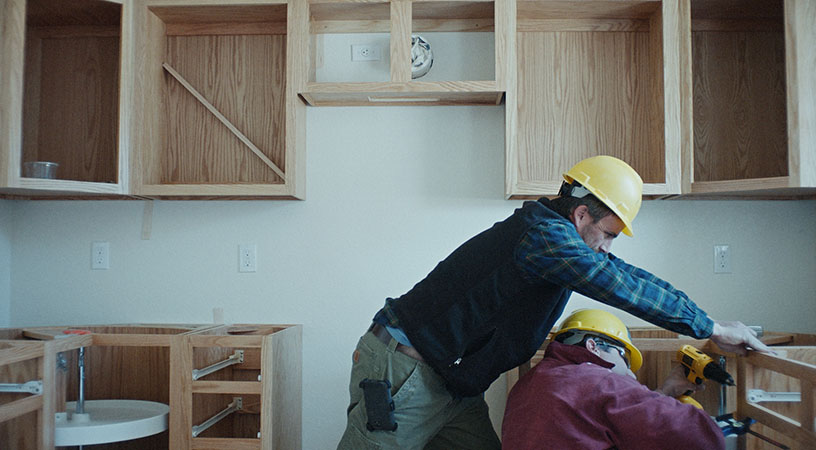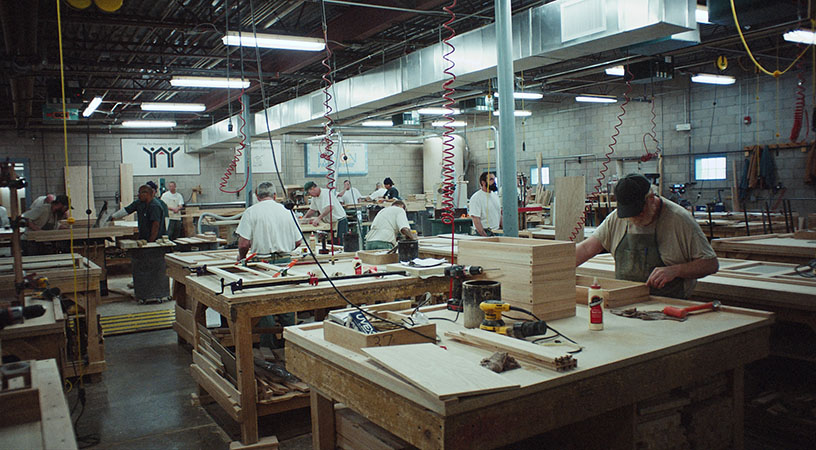A Fresh Start
At first glance, Crowley County Correctional Facility looks like many other prisons. It has cells, barbed wire fences and correctional officers. But step inside the facility’s bustling woodshop, and you’ll see an extraordinary journeyman program that is helping nearby communities, one cabinet at a time.
Over 1.6 million people in the U.S. are currently in state or federal prisons, and almost all of them will eventually re-enter society. At Crowley, the staff is committed to making sure inmates are educated and taught vocational skills that will help them secure employment once they’re released.
“When an inmate comes to prison, the goal is to provide them with as many opportunities as possible so they can leave and lead productive lives and not find themselves back in prison,” says Warden Michael Miller.
That’s where Crowley’s journeyman program comes in. Beginning in 1999, the vocational program was designed to give inmates construction skills, specifically in two sectors: kitchen/bathroom cabinet making and engineered roof trusses. Both programs have a partnership with Habitat for Humanity, helping to build homes in nearby Colorado communities.
“The most rewarding part for me is the change I see in people.”
Ken Baylor
Vocational Instructor
Crowley also has a partnership with the Wood Trust Council of America (WTCA), which allows the facility to offer the same curriculum that is provided to the industry. In other words, inmates are learning the same skills that would be taught to any person training to be a woodworker.
“The most rewarding part for me is the change I see in people,” says vocational instructor Ken Baylor. “It gives me great joy to know that the things that I’ve passed on to someone [are able] to bring change in their life.”
Inmates who complete the full journeyman program gain the equivalent of four years of job experience.

There is a short-term program that teaches basic skills, as well as a one-year program. For those who are incarcerated longer, a four-year program is available. By the end of it, the inmate will have earned journeyman status through the Department of Labor, and have logged 8,000 shop hours, which is the equivalent of four years of job experience and education. Upon release, the inmate is set up to have a number of viable employment opportunities.
“We always say that it’s a win, win, win,” Baylor adds. “It’s a win for the inmate, a win for the Habitat for Humanity family and for the community in which these homes are going.”















